Yesterday, we saw the S&P 500 fall by about 60 basis points, while the Nasdaq 100 declined by approximately 85 basis points.
Nvidia (NASDAQ:NVDA) was the leading stock, dropping 2.5% after China launched a monopoly probe into the company. Nvidia accounted for about 25% of the decline in the Bloomberg 500 indexes, which serve as proxies for the S&P 500.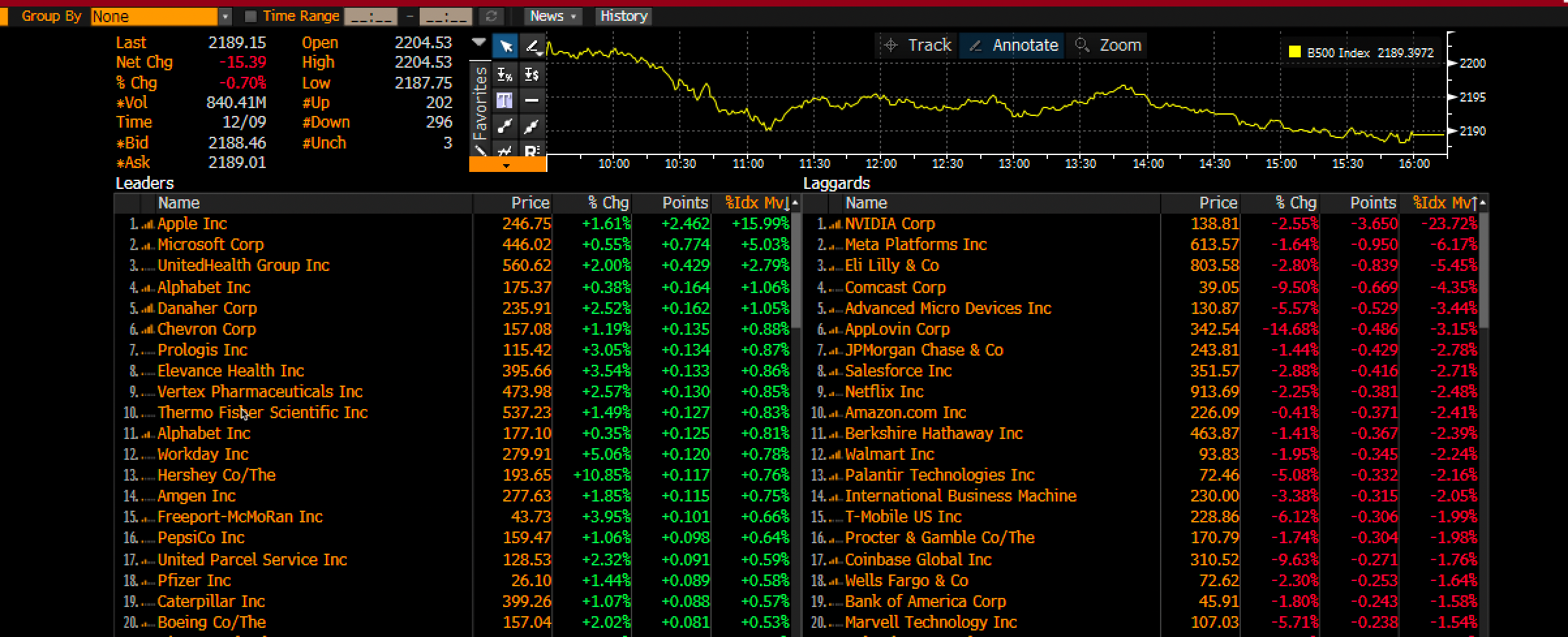
US 10-year Treasury yields rose slightly, closing at around 4.20%, up by about five basis points. The dollar index also gained, rising by roughly 20 basis points.
Two-year inflation swaps increased slightly to 2.56%, continuing to hover within the 2.55%–2.60% range seen in recent weeks.
These levels remain a focus as we approach Wednesday’s CPI report. Current expectations are for a 0.3% month-over-month increase and a 2.7% year-over-year rise—both slightly higher than October’s readings.
Core CPI is projected to remain in line with the previous month at 0.3% month-over-month and 3.3% year-over-year. Additionally, we’ll receive PPI data on Thursday and import/export price data on Friday, making this a key week for inflation indicators.
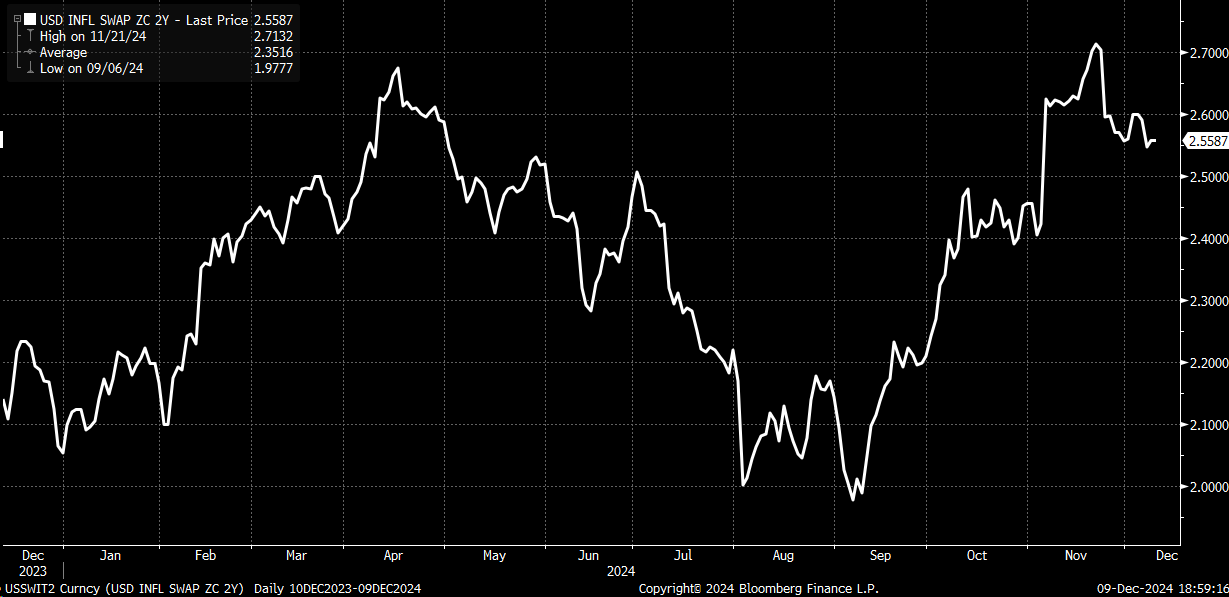
Credit spreads widened slightly, with CDX high-yield spreads increasing by 3.5 points to 292 basis points. While still depressed, these levels are worth monitoring for potential shifts in market sentiment.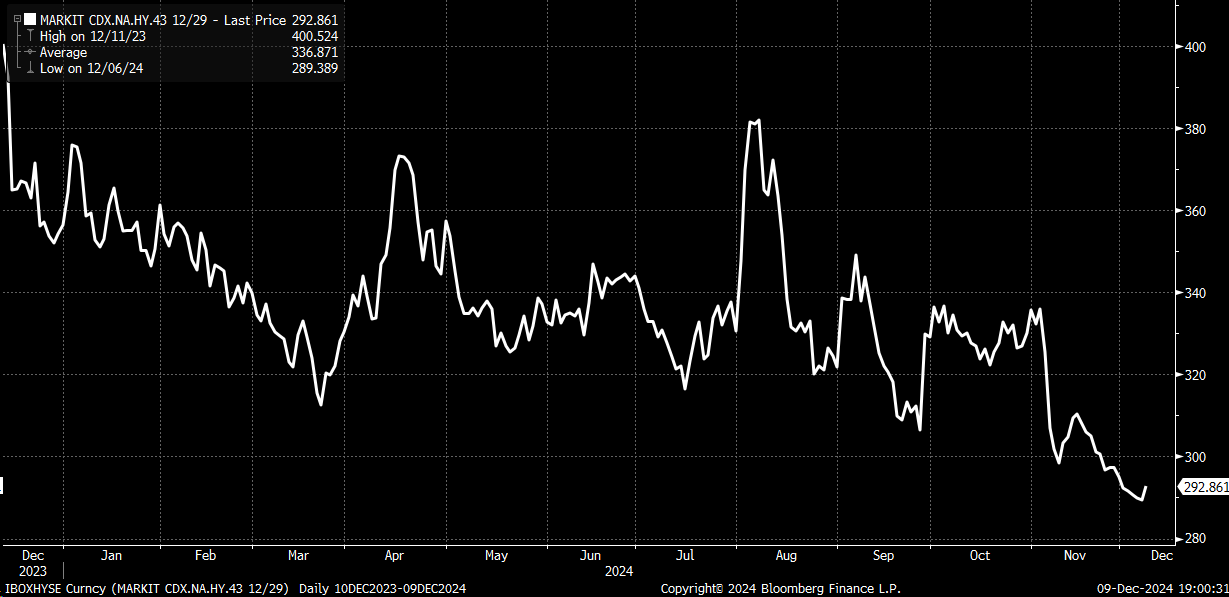
The one-month implied correlation index rose nearly 2 points to just over 10, still at low levels but trending higher. Other volatility metrics followed suit, with the VIX climbing 1.5 points to 14.20.
Realized volatility also ticked higher, with 10-day realized volatility closing up about 1 point to 7 and 20-day volatility rising to 8. These moves suggest that volatility, while still relatively subdued, is beginning to show signs of life as the market remains range-bound.
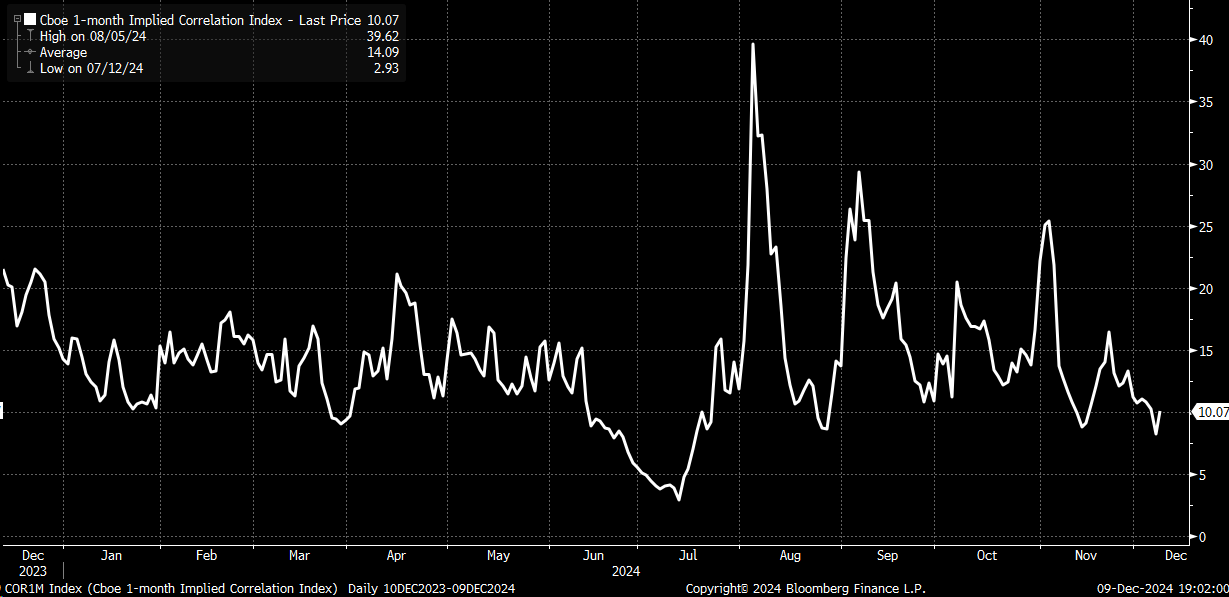
On the technical side, the S&P 500 tested significant support at 6,050, filling a gap created on December 4. The index broke out of a diamond reversal pattern, signaling the potential for further declines.
A break below 6,050 could pave the way to 6,000 or lower, where additional gaps remain. The broader concern lies with the rising wedge pattern since August, which appears to be nearing its conclusion.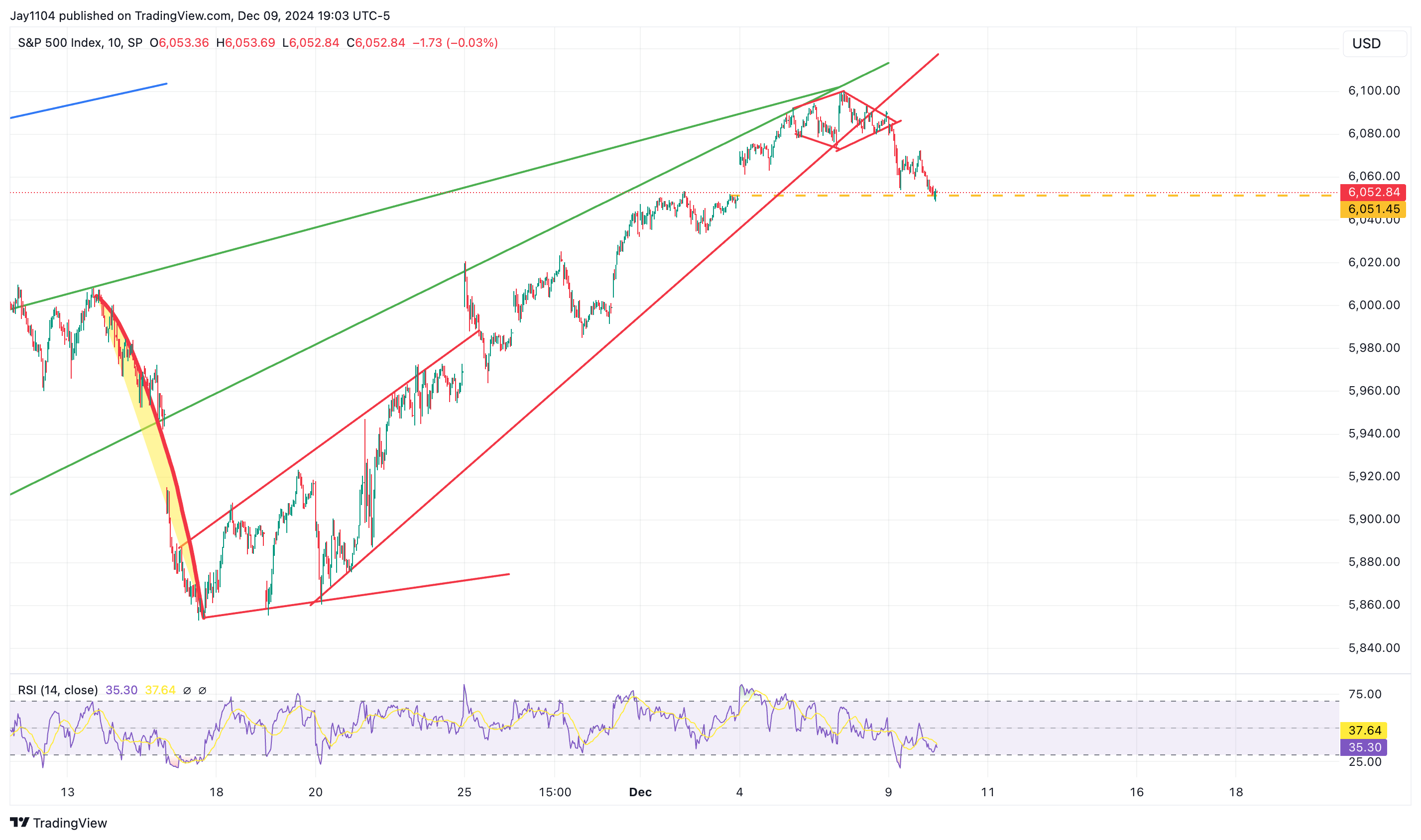
Similar conditions persist in the Nasdaq, where the rising wedge pattern also appears close to resolution. The coming days will be crucial in determining whether the market breaks lower.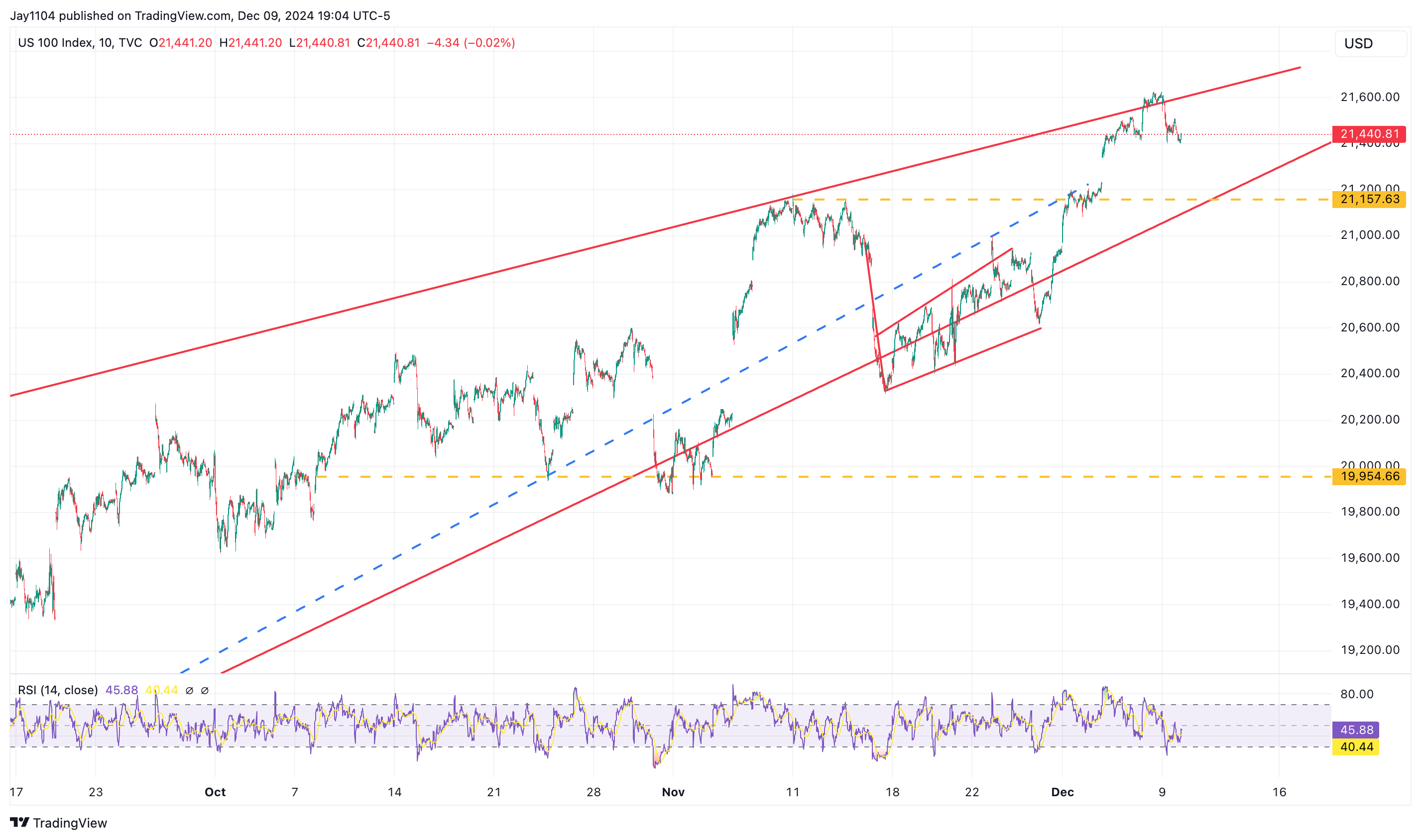
Have a great evening, and see you next time!
